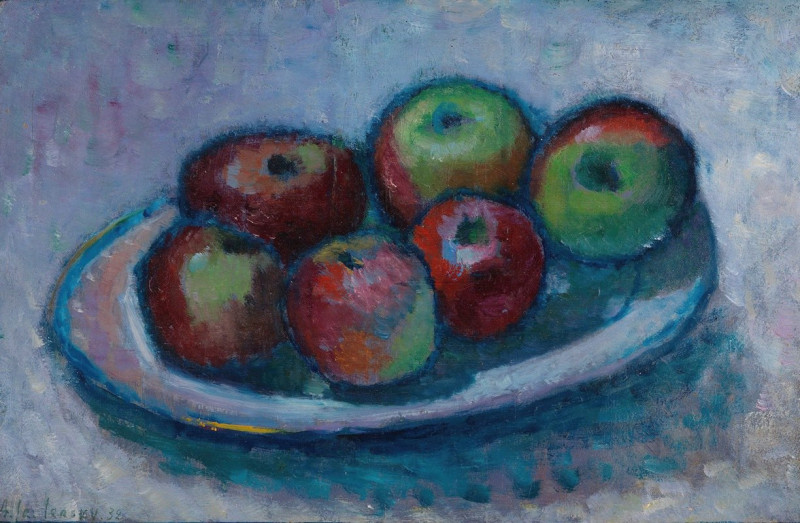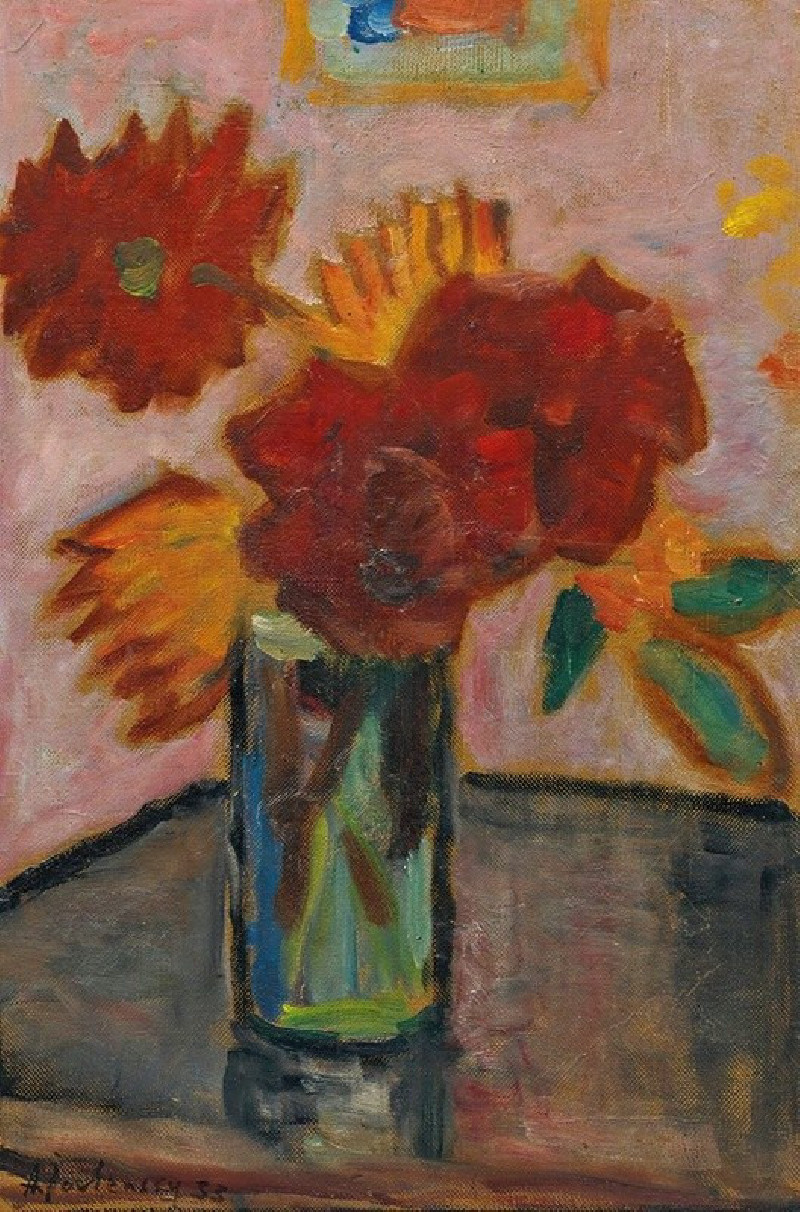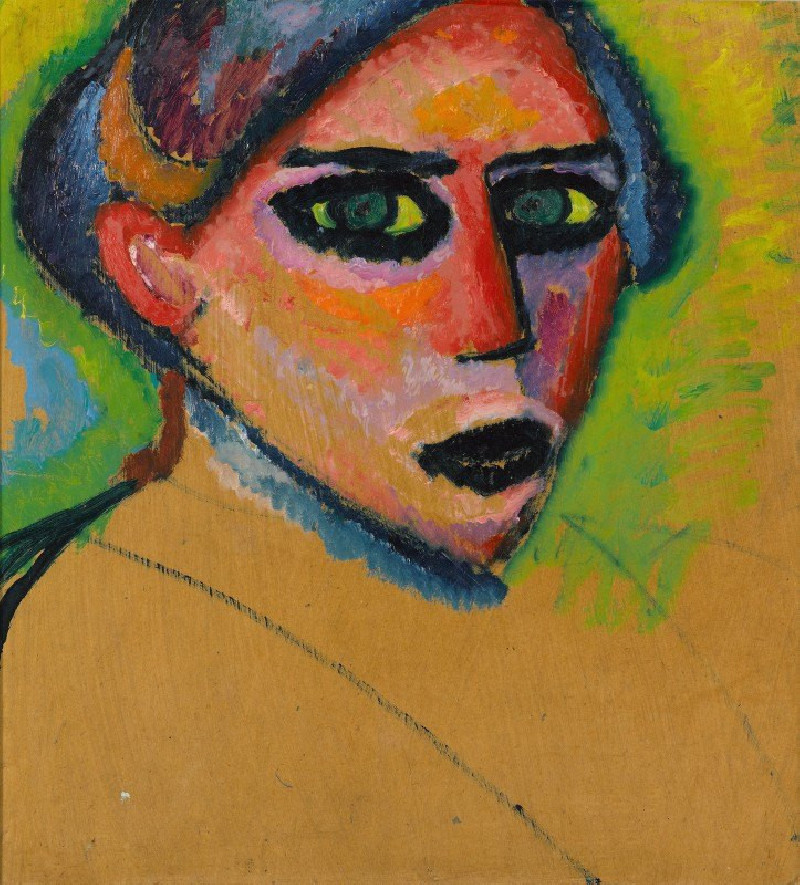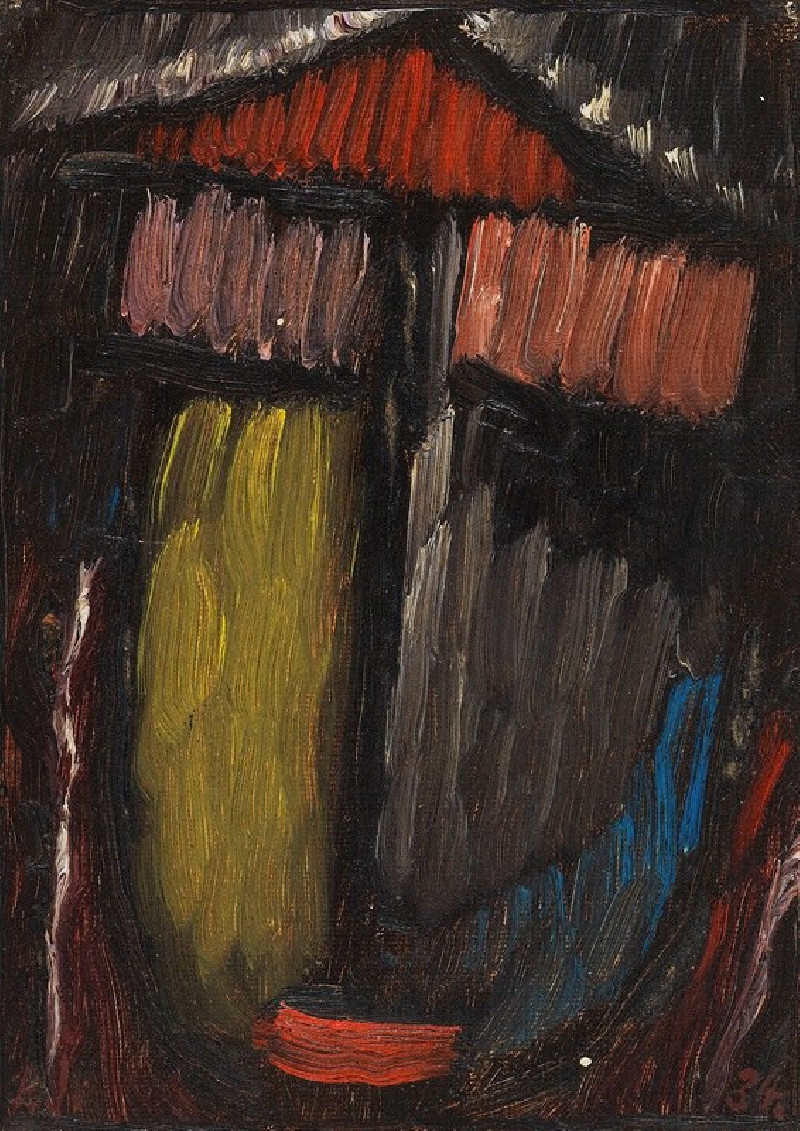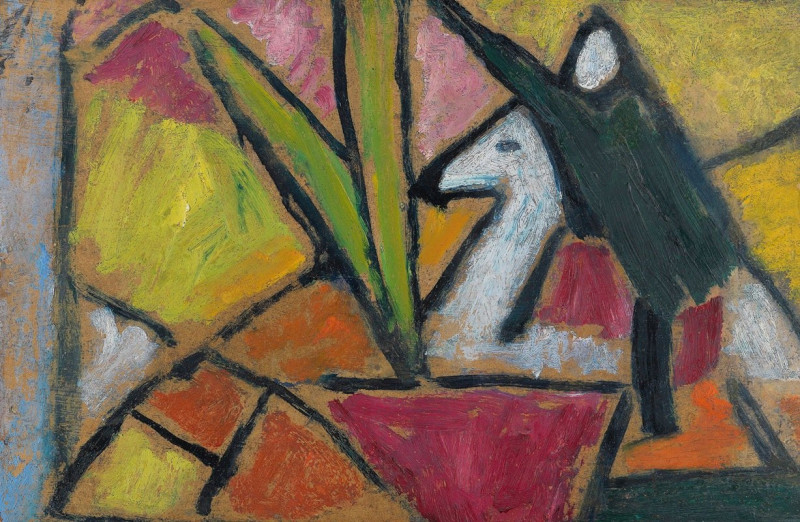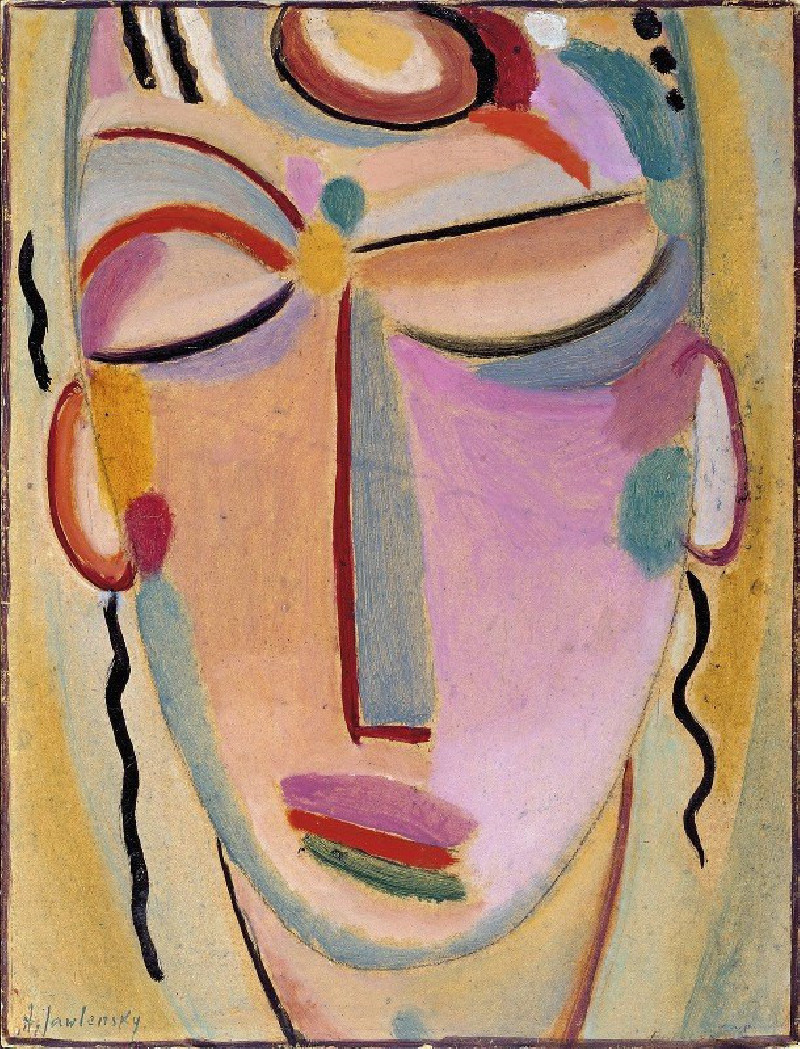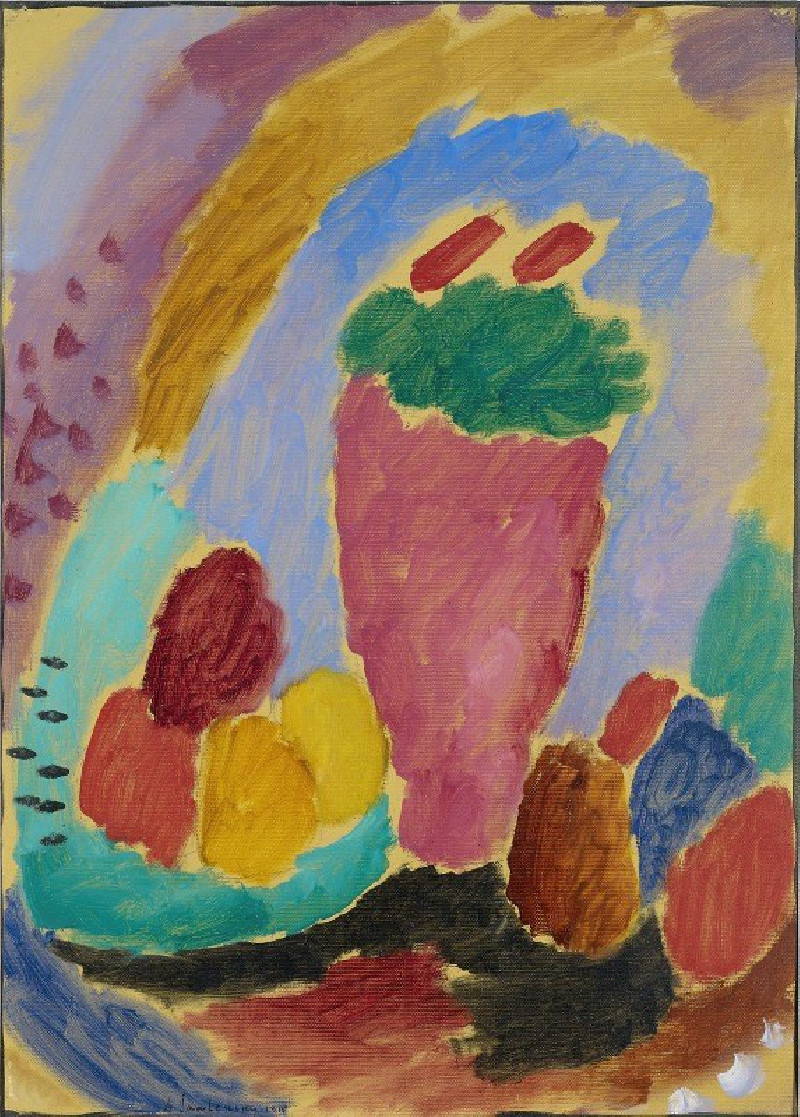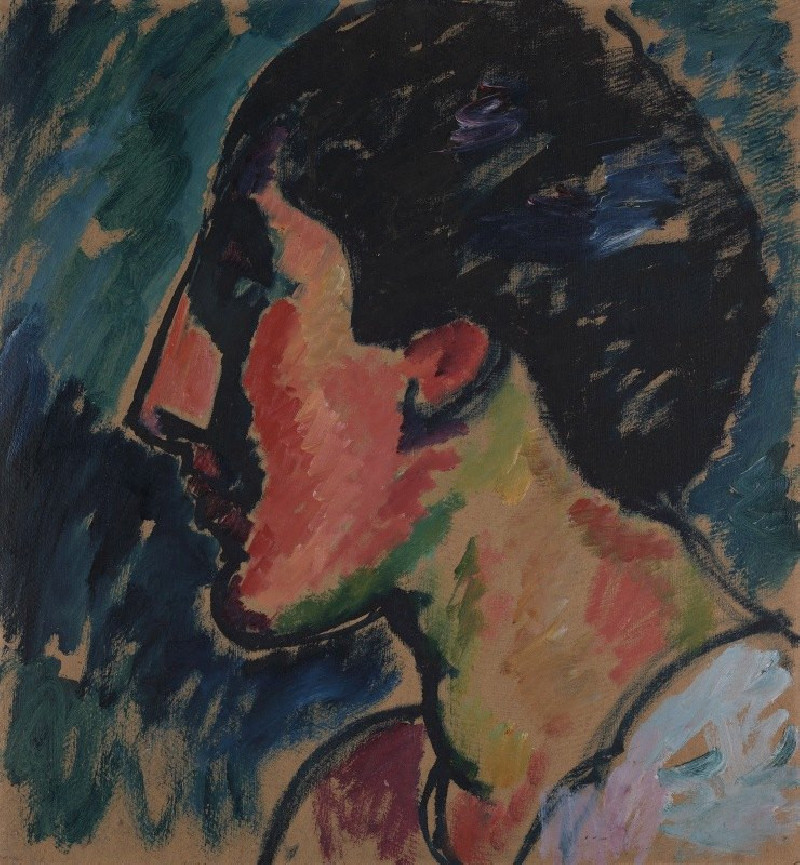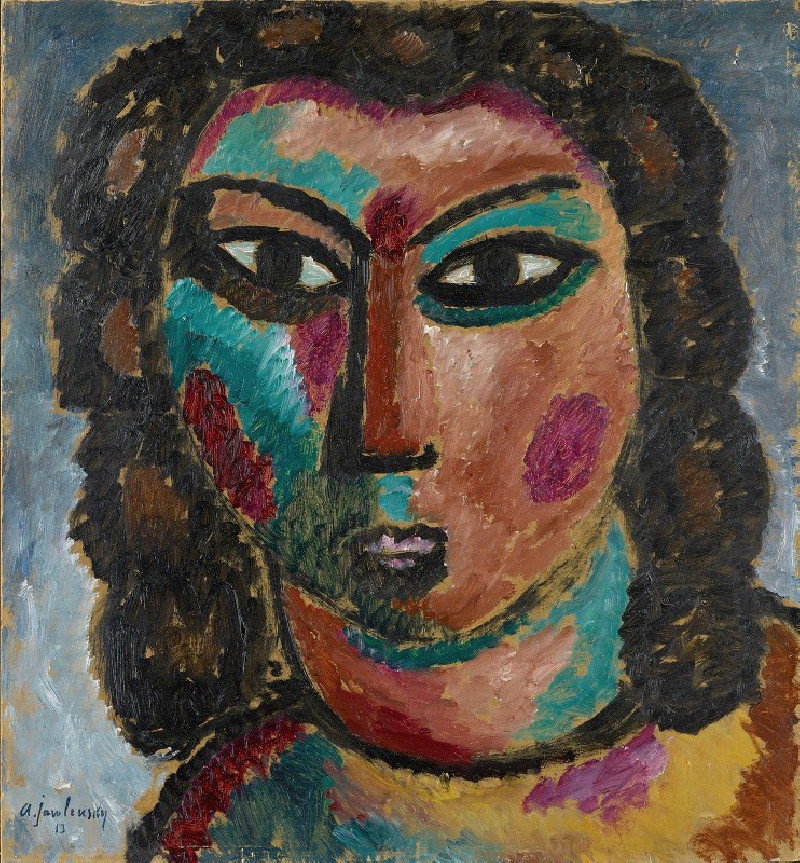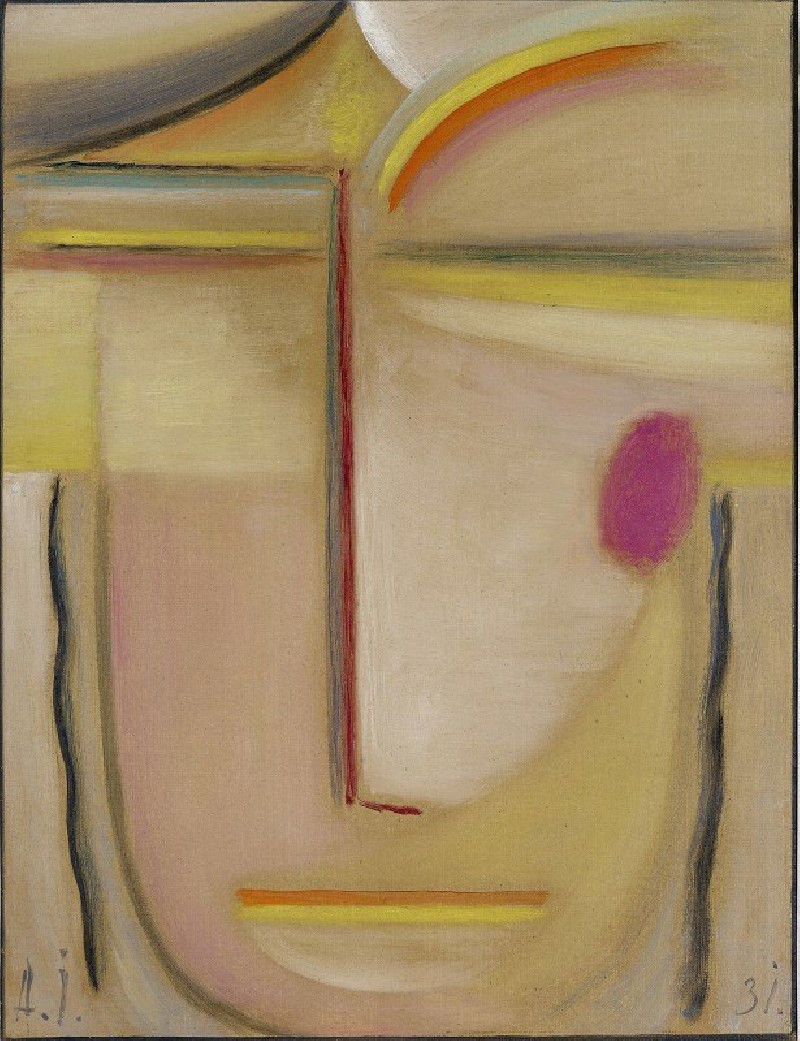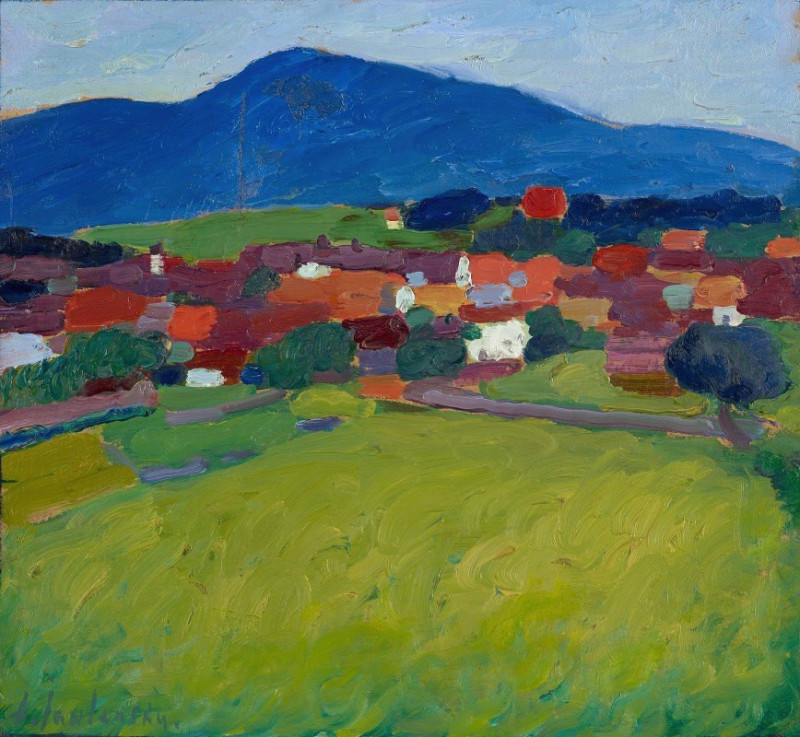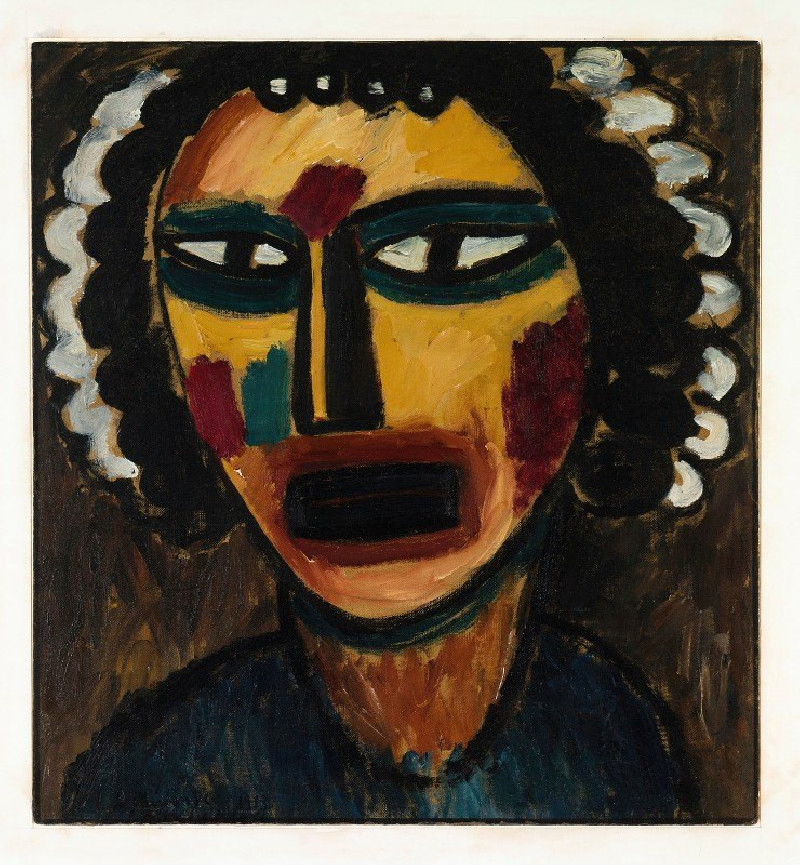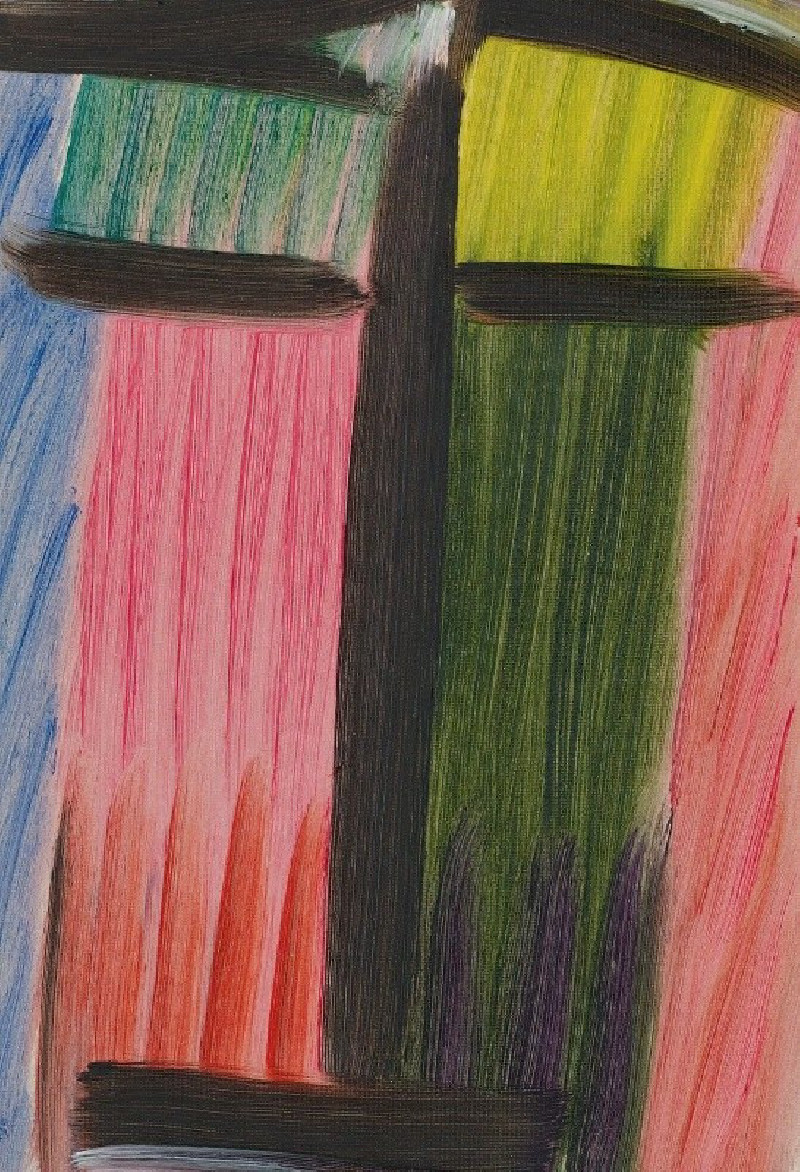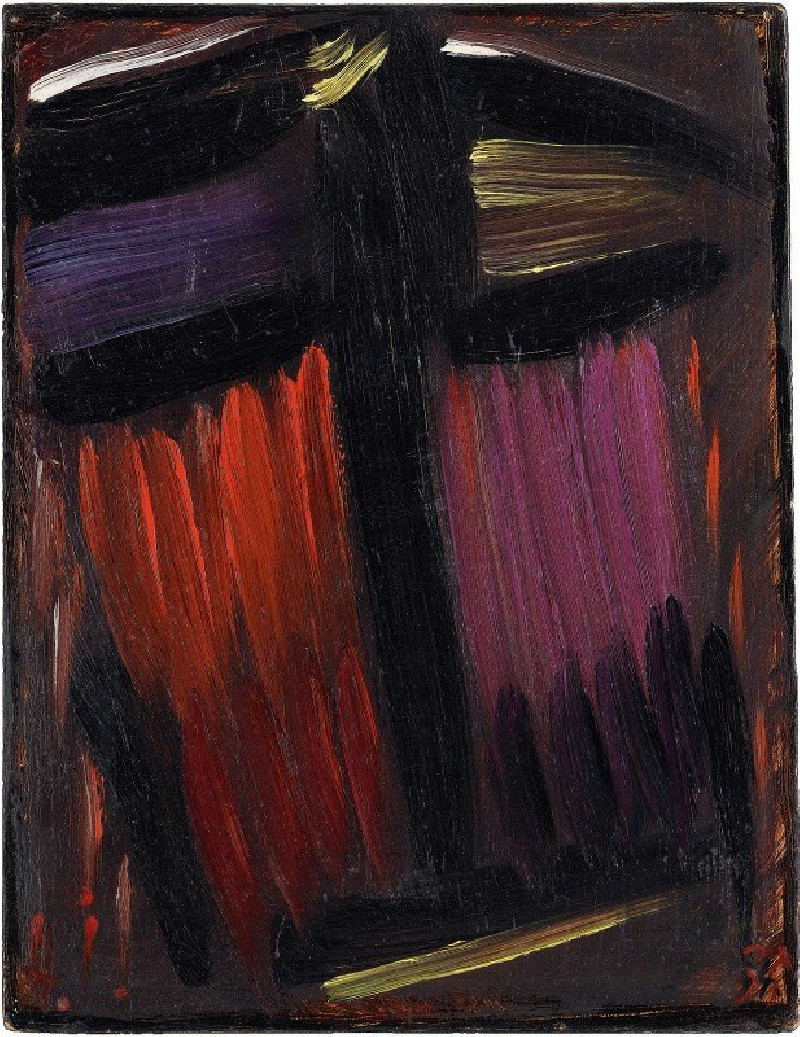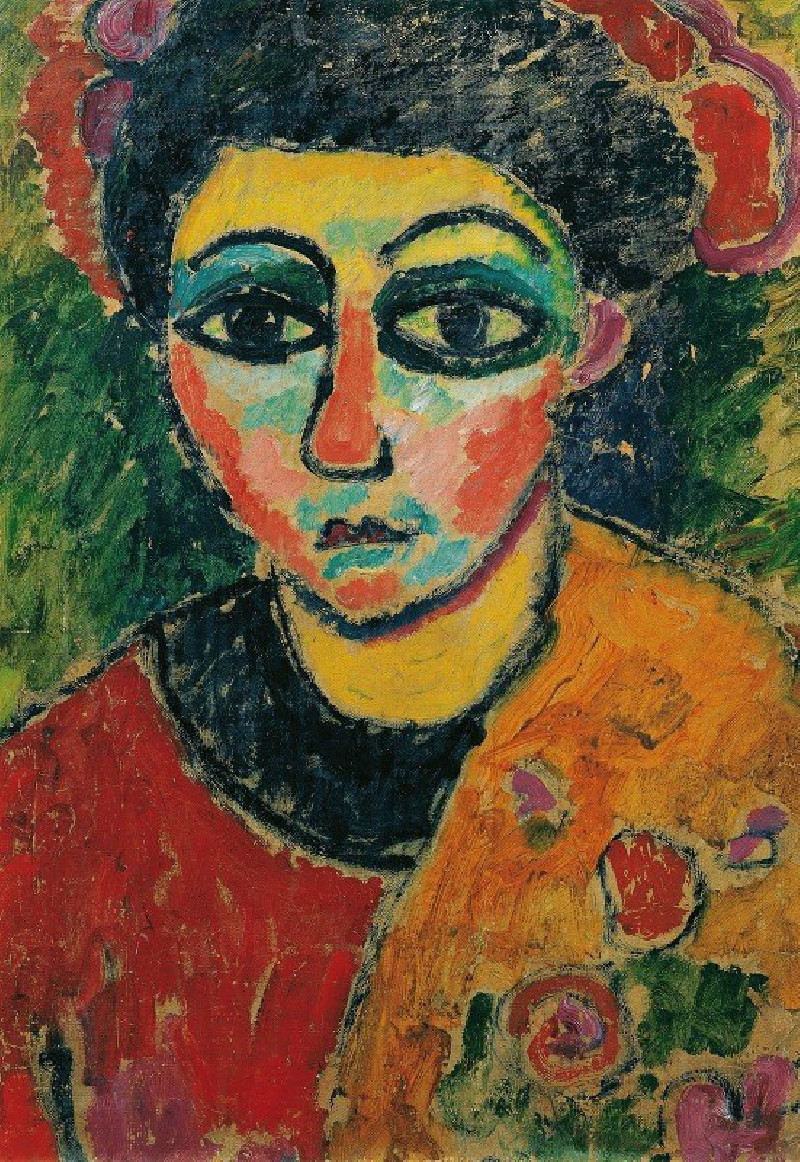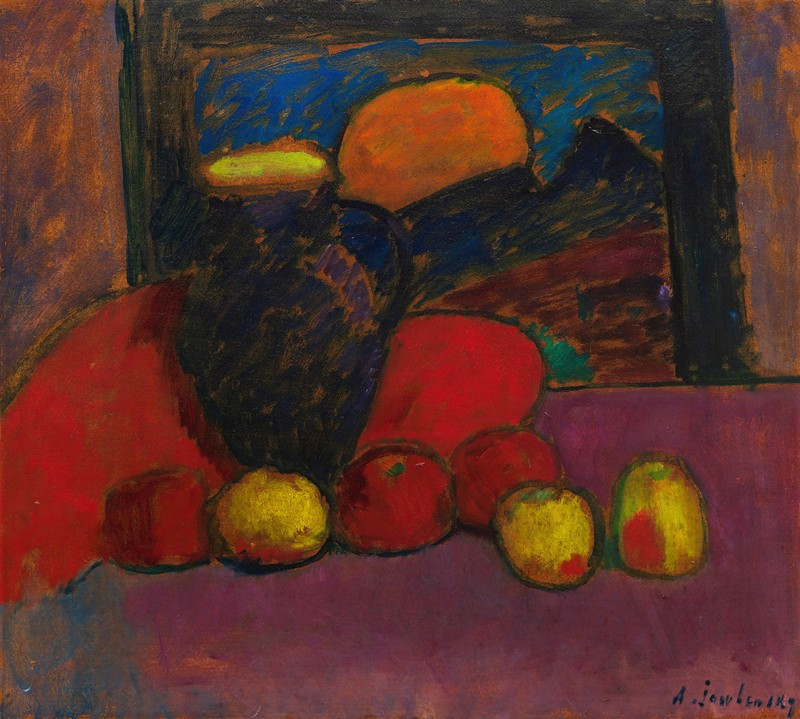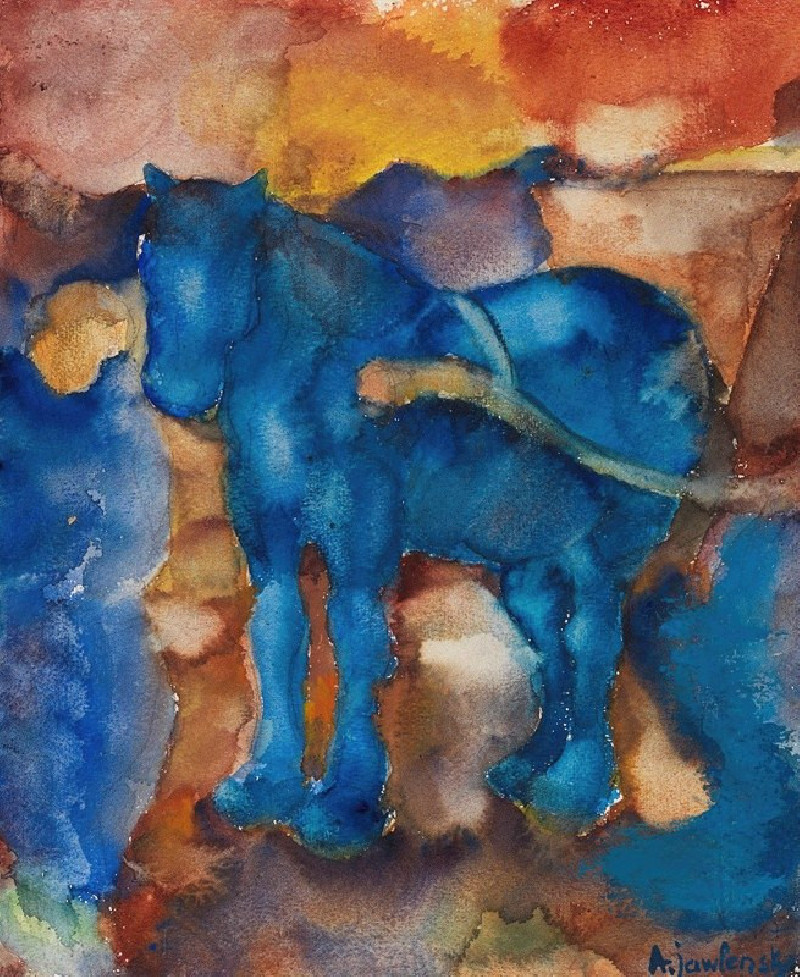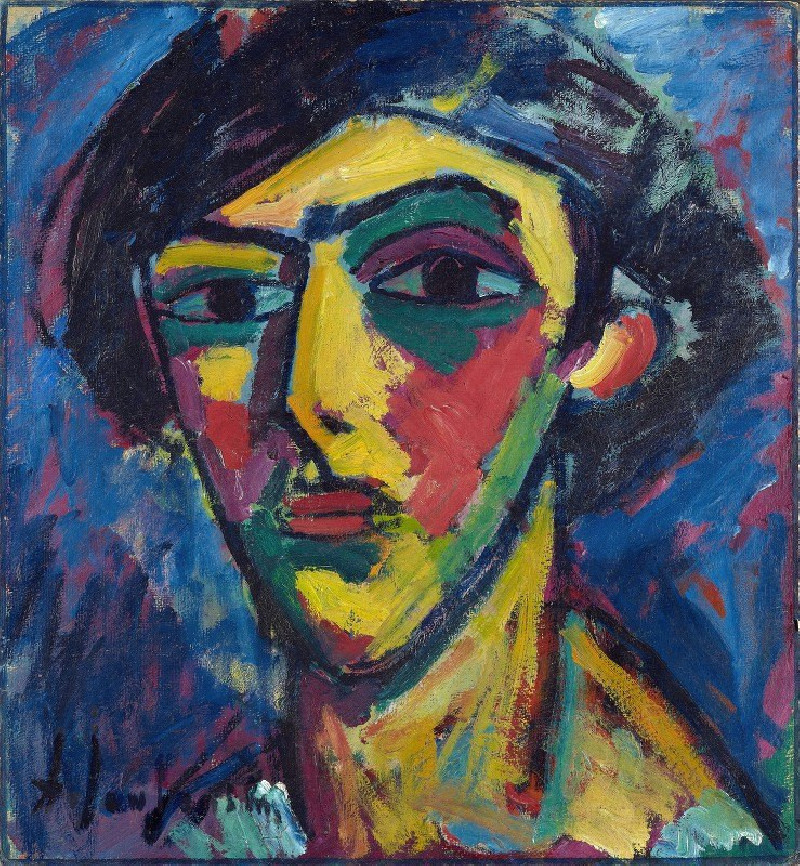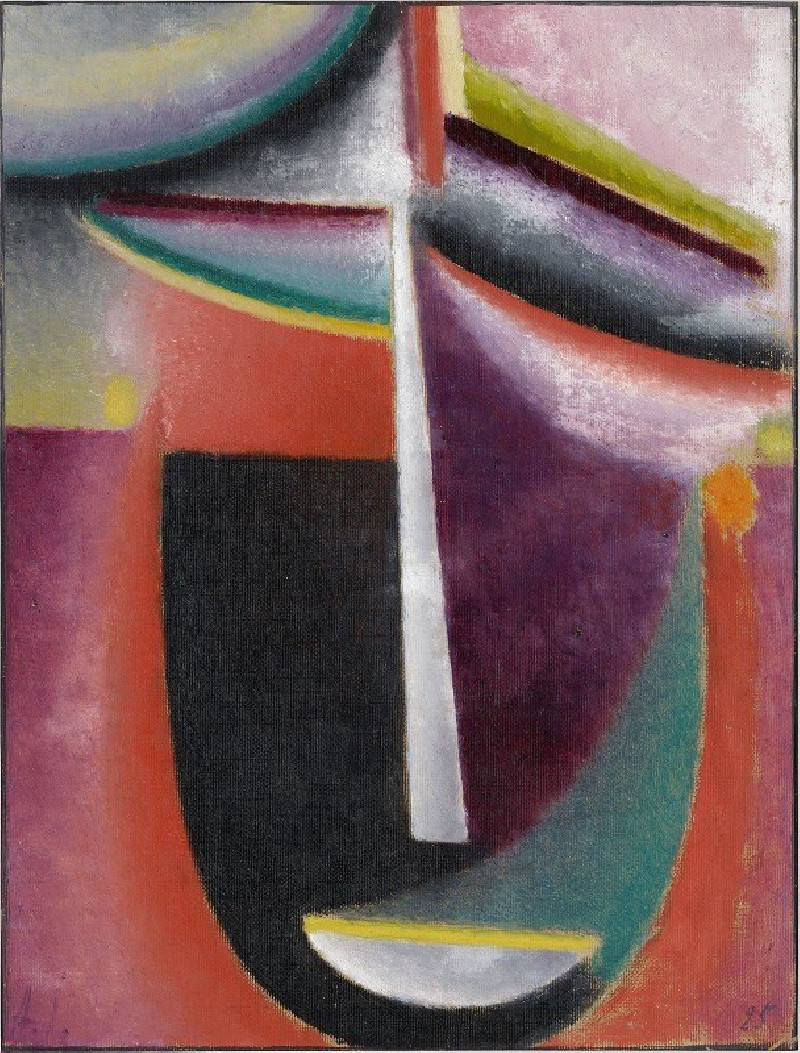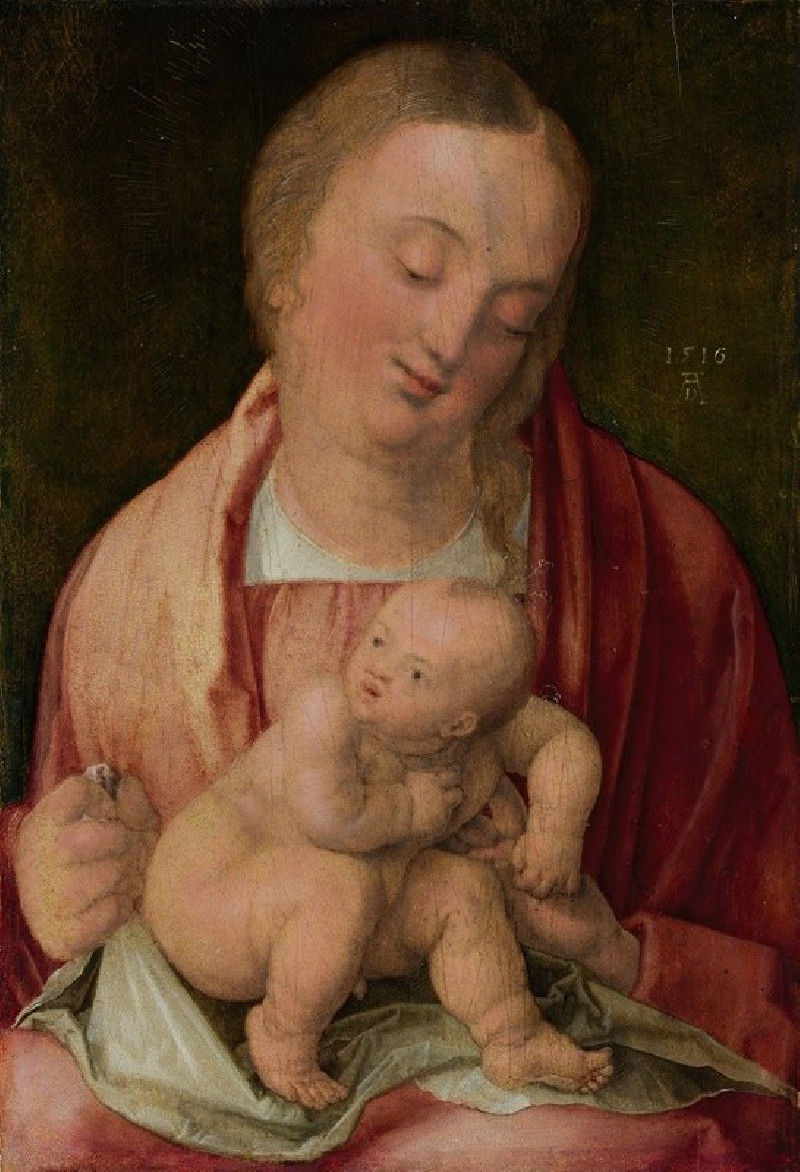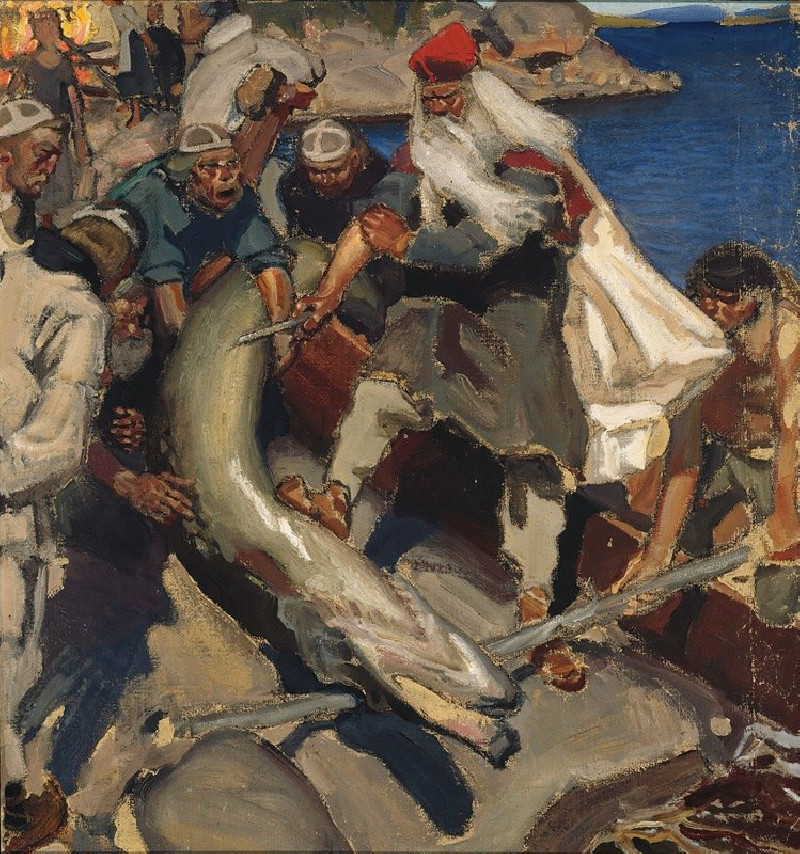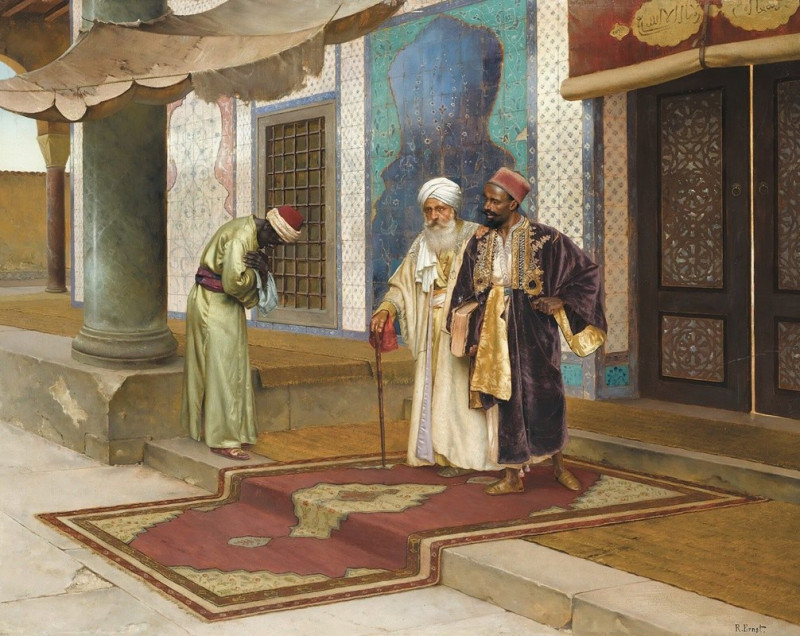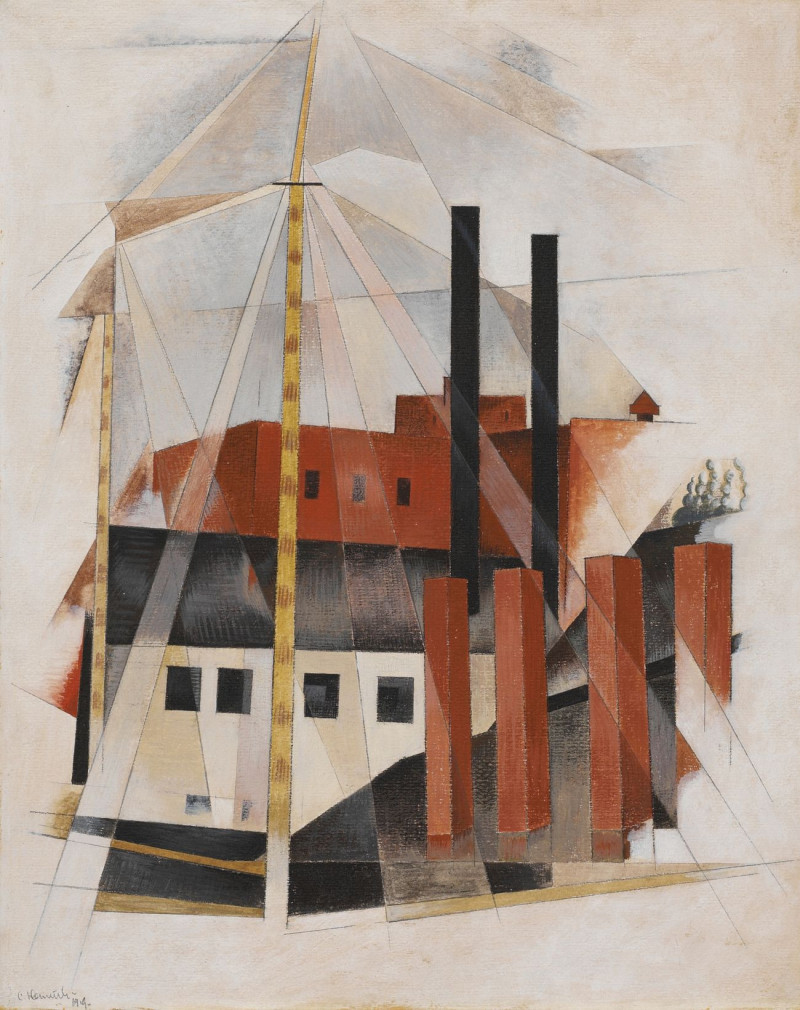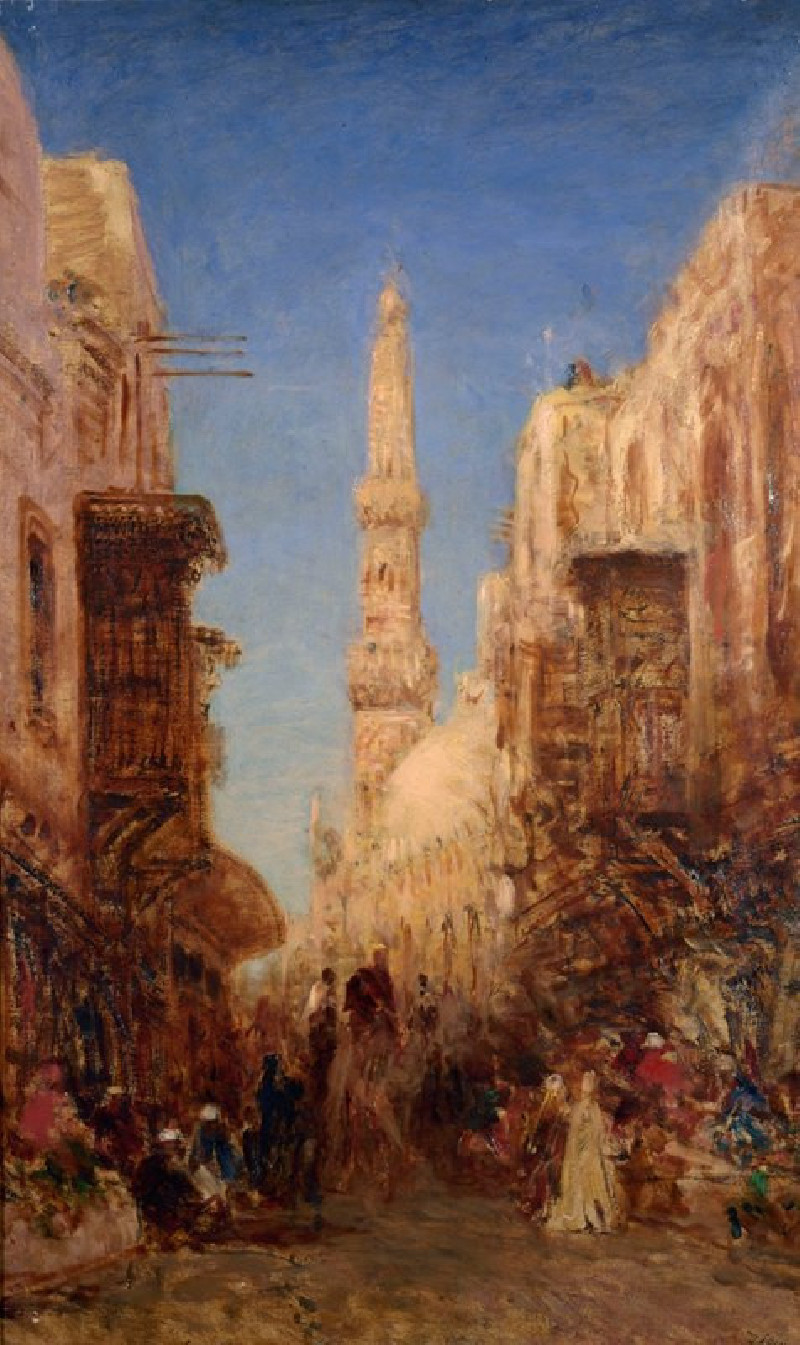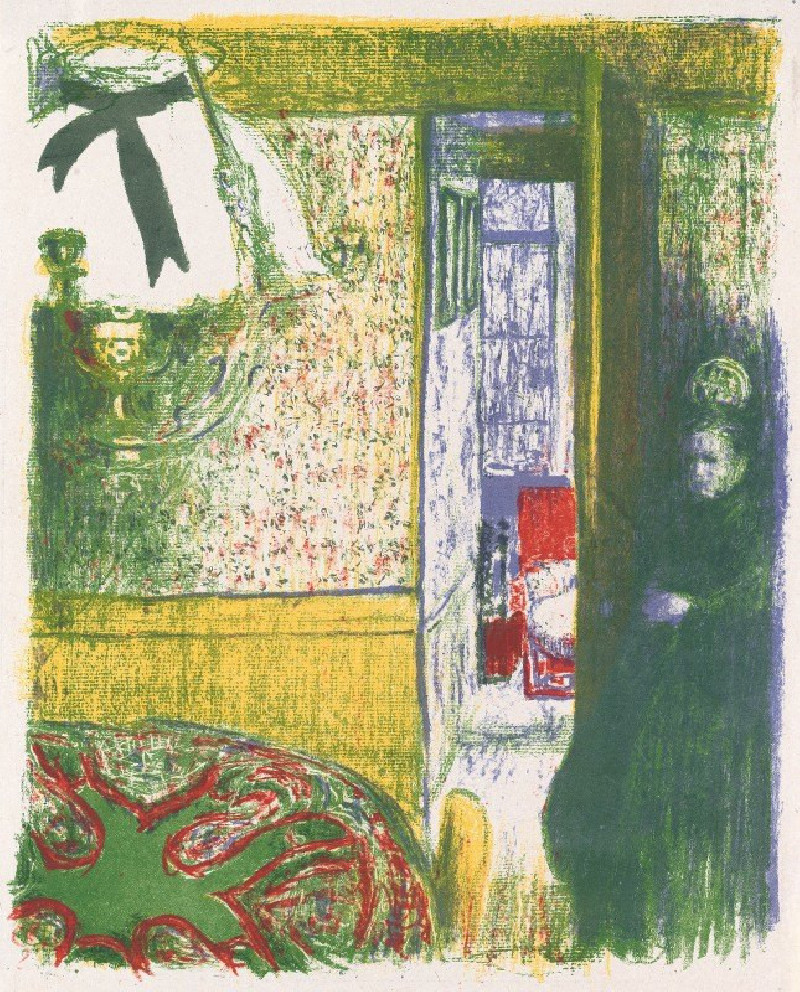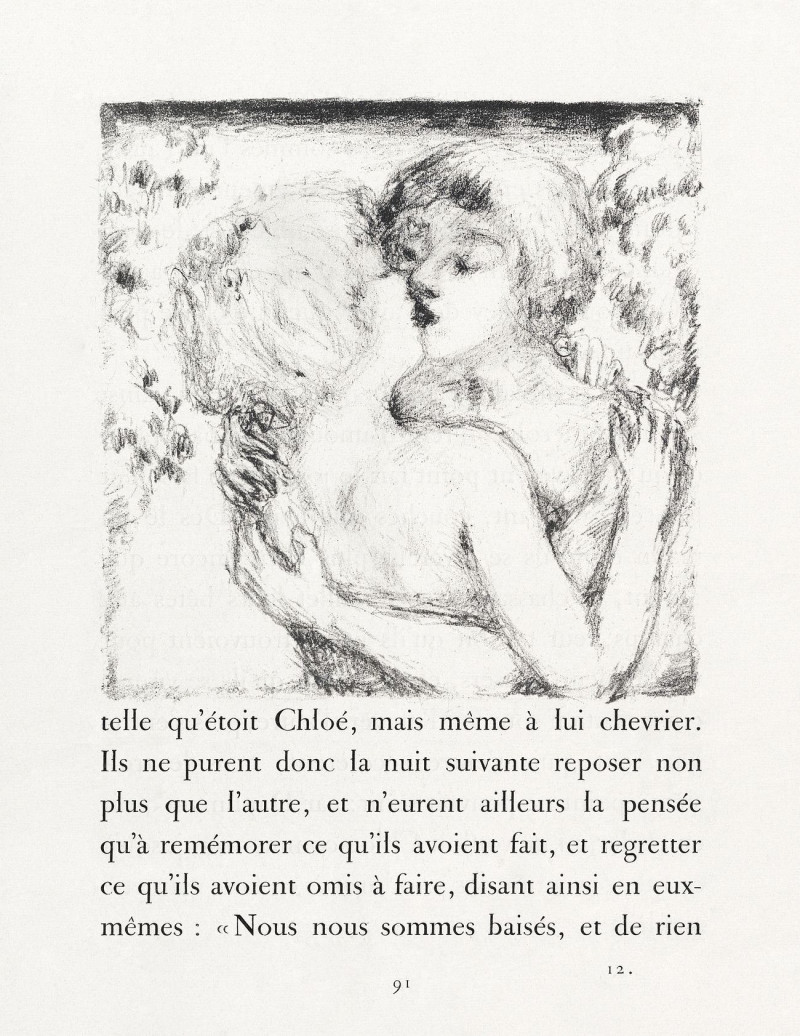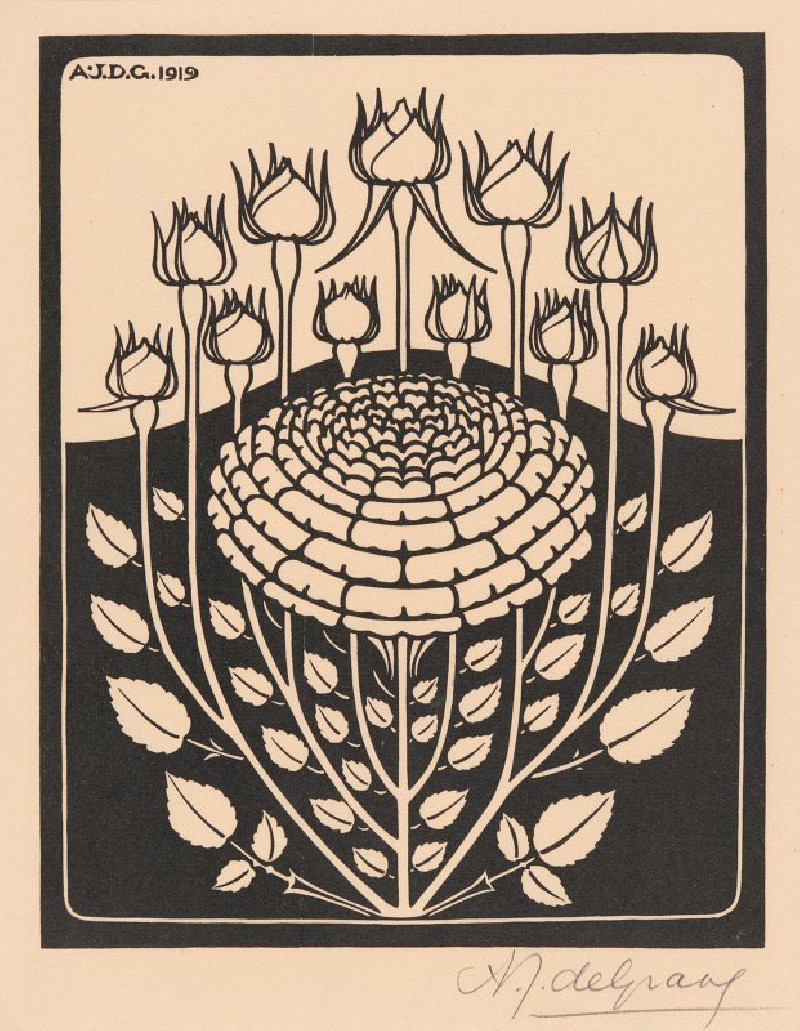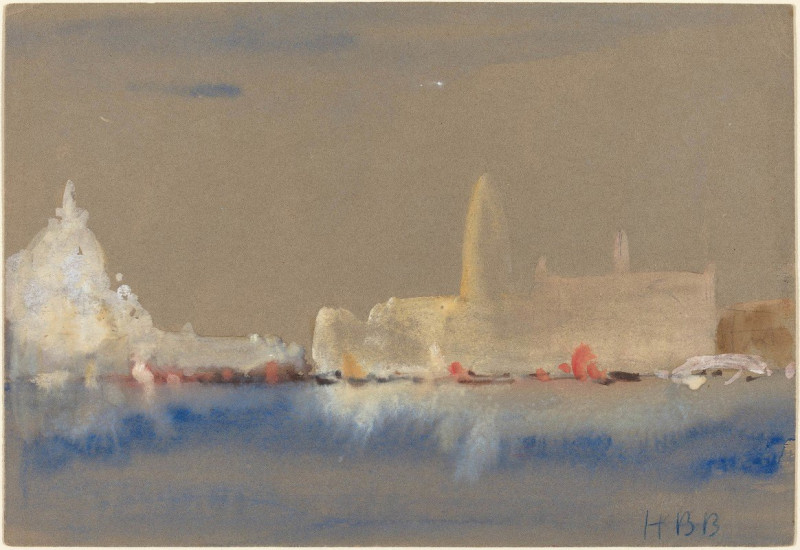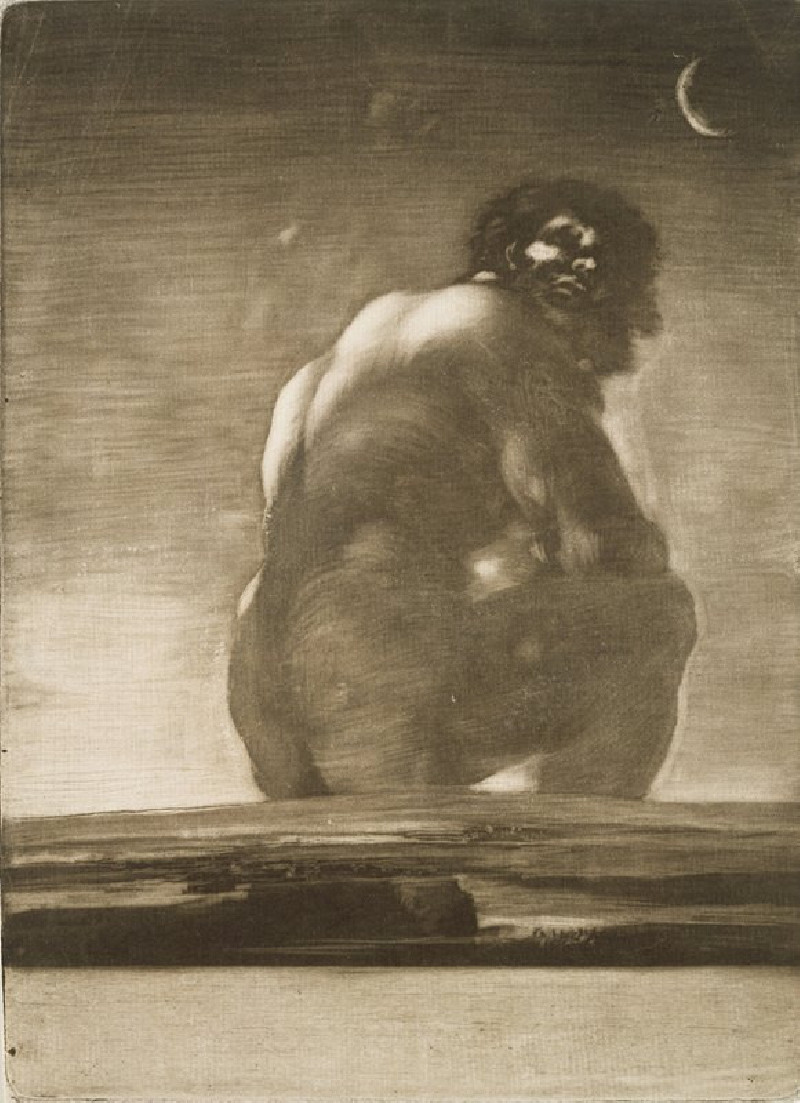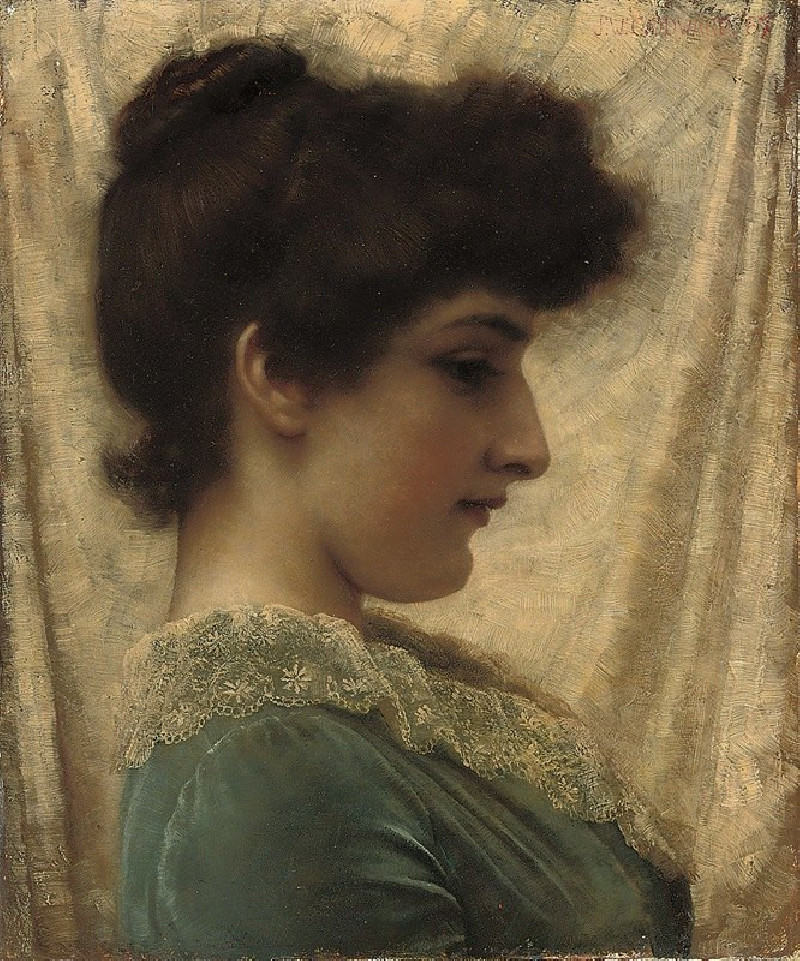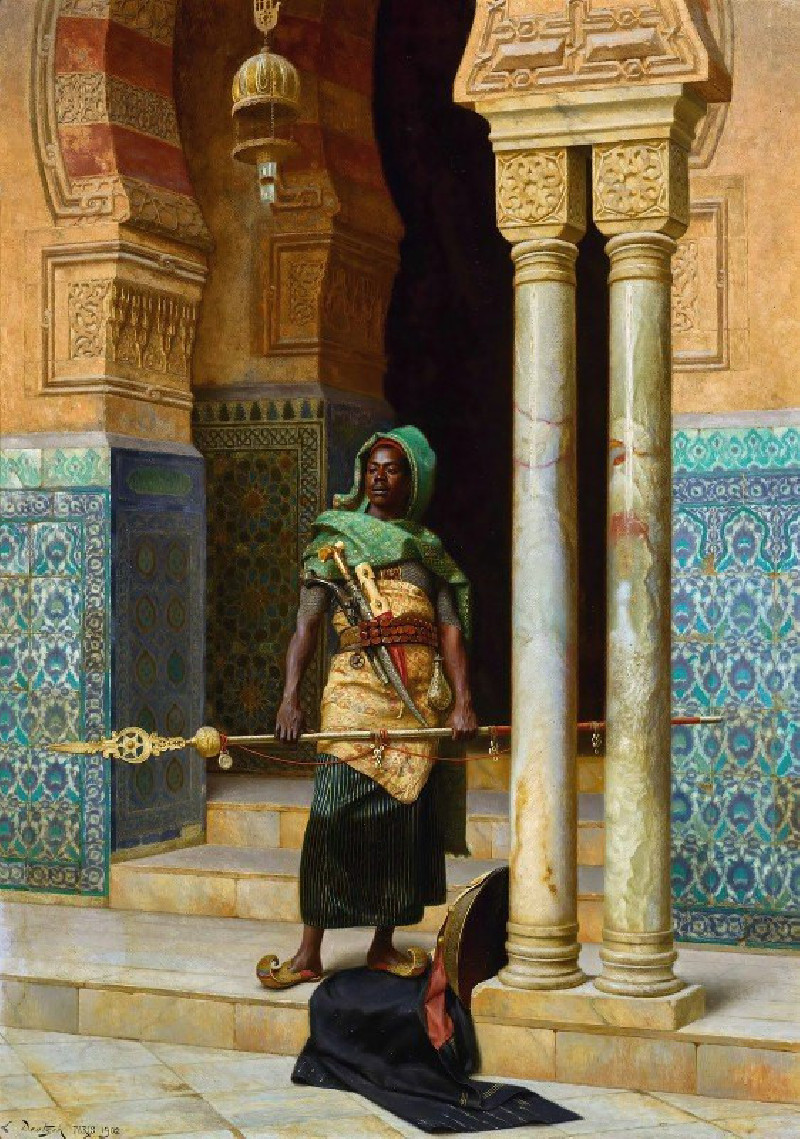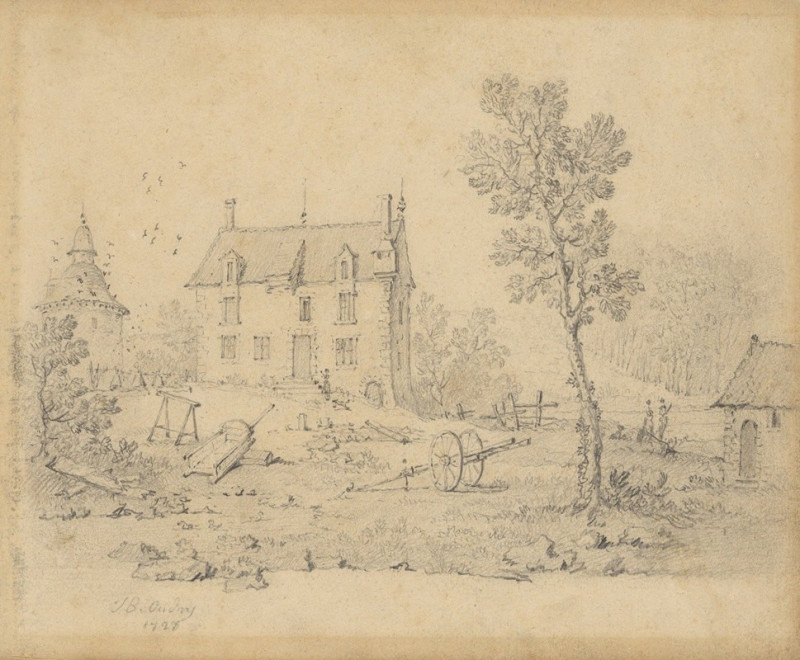Teller Mit Äpfeln (Äpfelstillleben) (1932)
Technique: Giclée quality print
Recommended by our customers
More about this artwork
"Teller Mit Äpfeln (Äpfelstillleben)" (1932) by Alexej von Jawlensky presents a delightful still life of vibrantly colored apples resting on a plate. In this painting, Jawlensky employs a rich palette of reds, greens, and shades of blue that breathe life into a seemingly simple subject. The individual apples are depicted with an intense and varied color application, reflecting light and shadow in a way that gives each fruit a unique texture and sense of volume.The backdrop of muted blues and grays complements the vividness of the fruit, allowing the apples to stand out starkly against the understated, almost dream-like background. The rough, expressive brushstrokes typically found in Jawlensky's work are evident here, emphasizing the artist's emotional response to the ordinary scene rather than a mere photographic representation.This piece is a wonderful example of how everyday subjects can be transformed into a bold expression of color and form.
Delivery
Returns
Alexej Georgewitsch von Jawlensky (13 March 1864 – 15 March 1941) was a Russian expressionist painter active in Germany. He was a key member of the New Munich Artist's Association (Neue Künstlervereinigung München), Der Blaue Reiter (The Blue Rider) group and later the Die Blaue Vier (The Blue Four).

